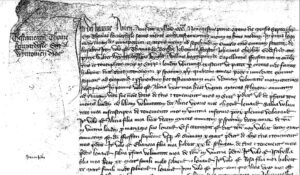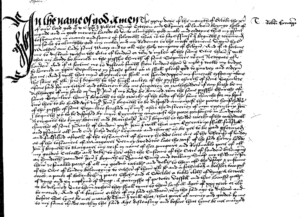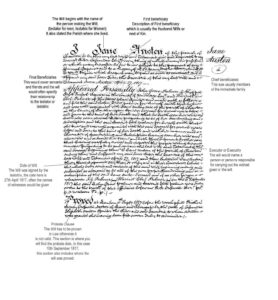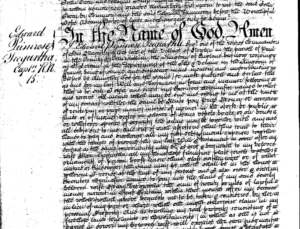When doing family history reserach, probate records can sometimes be the missing link in a genealogical research puzzle. They will often prove legitimacy (also illegitimacy), they can validate children in a marriage, and also validate the correct spouse.
Probate records can prove land ownership, prove birthright, link family members, and even give detailed and personal information about the thoughts and lives of our ancestors and their family and friends.
These record sets are just as important as most others when doing genealogical research – yet at times they are even more important, because probate records date back hundreds of years prior to 1538 (when the first baptisms in England were recorded) and so make them the oldest known genealogical record source.
Probate records are essentially court records dealing with the distribution of a person’s estate after death. Often we see recorded the death date of the individual, names of heirs, family members, and guardians, relationships, residences, inventories of the estate (including trade and household goods), and names of witnesses.
As mentioned above, probate records are extremely useful for a genealogist because:
-
They are often the only record for the time period before census records where all members of a family might be listed;
-
They can give vital information such as localities that the individual is associated with; and
-
They were recorded much earlier than baptism, marriage, and burial records.
Probate records were not created for every person who died, however, as one quarter of the population prior to 1858 either left a will or was mentioned in one.
While probate records are one of the most accurate sources of genealogical evidence, they also have to be used with caution because they might:
-
Omit the name of the eldest son who received his inheritance according to law, as well as omit the names of others who had previously received their inheritance and/or any deceased family members;
-
Mention children from a spouse’s previous marriage;
-
Mention a spouse who is not the parent of the children named; and
-
Give inaccurate relationships of people mentioned in the document.
Further research around the information in a probate record must be done to validate information and connect the dots. This is often done with land records, estate records, and parish chest records.
One obstacle you might face when finding an old Will is being able to read it accurately (see two examples below). It may prove beneficial to do some palaeography courses to help with this; there are many online free courses to be found.
(Palaeography is the study of ancient writing systems and the deciphering and dating of historical manuscripts).
BELOW: Portion of a Will dated 1391
BELOW: Portion of a Will dated 1522
(Continue reading to see the Will of Jane Austen below)
Types of Probate Records
Will – A will conveys real (immovable) property to heirs after an individual’s death. A registered will is an official copy made by a court clerk.
Testament – A testament conveys personal (moveable) property to heirs. The term, will, since early times has commonly referred to both a will and a testament.
Codicil – A codicil is a signed, witnessed addition to a will.
Administration or Letters of Administration – These refer to a document appointing someone to supervise the estate’s distribution for someone who died “intestate” (without a will). They usually contain very little information but may have some useful clues. The administrator is usually a relative of the deceased.
Admon with Will – This type of probate record grants administration to someone else when the executor named in the will is deceased or is unwilling or unable to act as executor.
Inventory – An inventory lists belongings and their values, including such items as household goods, tools, and personal items.
Act Book – An act book contains day-by-day accounts of court actions, usually giving brief details of the probate matters dealt with. These books can help locate other desired documents.
Bond – A bond is a written guarantee that a person will faithfully perform the tasks assigned to him by a probate court.
BELOW: The Will of Jane Austen, date 1817.



